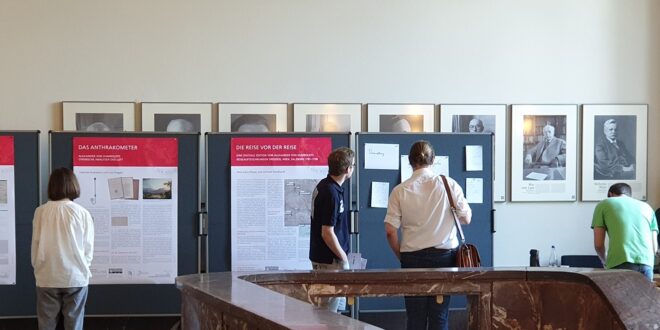Immigration authorities are working against the spirit of the law on skilled labour immigration, according to the association for foreign students in Germany. Many international students feel “downright fear and despair” when going to the authorities, the body said, suggesting how the situation could be improved
The Federal Association of Foreign Students (Bundesverband ausländischer Studierender or BAS) has sharply criticised the implementation of the Skilled Labour Immigration Act by the immigration authorities. The improvements for foreign students achieved by the law have come to nothing in practice, the BAS said.
“Immigration authorities are a deterrent and often thwart efforts to attract foreign skilled workers,” the body pointed out. “The work of many immigration authorities runs counter to the political will of the legislator.”
BAS said many students had to stop studying or working for days waiting for an appointment at the relevant immigration office. “Time and again, the media and those affected report on the catastrophic conditions that prevail in immigration authorities in Germany and the impact this has on people,” the students say.
“Many foreign students have not had a proper residence permit for months and have to make do with a Fiktionsbescheinigung, a provisional residence title. Due to the uncertain character of the Fiktionsbescheinigung, employers do not hire those affected, the BAS lamented. “The situation is usually well known, but there is hardly any remedy.”
The BAS welcomes the improvements for foreign students achieved by the Skilled Labour Immigration Act (FachKrEG) and the Act on the Further Development of Skilled Labour Immigration, but sees massive problems with the implementation of the legislations. “The right political will and the legal improvements,” says Fabian de Planque of the BAS Executive Board, “are not being implemented by the immigration authorities in some cases, at least not in the sense intended by the legislators. Instead of discretionary scope being used in favour of those affected, many foreign students feel disadvantaged and discriminated against.”
BAS also repeatedly receives reports of numerous cases in which the actions of the immigration authorities do not comply with the legal provisions. Foreign students from a large number of university locations report unacceptable conditions, such as a lack of opportunities to reach the case officer, deadline bottlenecks, discrimination, a restrictive interpretation of the law or communication problems.
“The legal situation of foreign students may have improved in theory in recent years. However, this is of no use if immigration authorities do not implement this or simply do not fulfil their duties,” says Johannes Glembek, Managing Director of BAS. “The federal and state governments must finally work together with the local authorities to ensure that the structural and material foundations are in place so that every foreigners authority can carry out its work properly and implement the statutory regulations,” Glembek continued. In this implementation, the widest possible scope of discretion must be used in favour of foreign students and academics.”
“I wonder whether the authorities realise that quite a few foreign students feel downright fear and despair when they think about going to the immigration office,” complains Sergej Haar of the BAS board.
BAS is calling on the lawmakers and the immigration authorities to implement the following measures to improve the situation of foreign students and academics in Germany:
- Waiving proof of funding, in particular proof of the so-called blocked accounts
- Issuing residence permit for at least two years, utilising the legal framework of the law
- Digitalisation of the application process and appointment allocation
- English language skills in all immigration authorities and sufficient information in English, digitally and on paper
- Regular involvement of universities in critical decisions, especially in the case of measures to terminate residence permit of a foreign scholar
- Granting residence permits with the maximum possible time limit in their validity
“These measures would help to minimise the processing burden and establish a new welcoming culture,” the association said.
“Not only are improvements in substantive law important, but above all in the administrative procedures at the immigration authorities. Administrative practice must finally follow the paradigm shift in residence law that has long since taken place,” BAS added. “An important building block is also the updating of the 2009 administrative regulations in order to emphasise the will of the lawmaker.”
Vivian Asamoah
 THE AFRICAN COURIER. Reporting Africa and its Diaspora! The African Courier is an international magazine published in Germany to report on Africa and the Diaspora African experience. The first issue of the bimonthly magazine appeared on the newsstands on 15 February 1998. The African Courier is a communication forum for European-African political, economic and cultural exchanges, and a voice for Africa in Europe.
THE AFRICAN COURIER. Reporting Africa and its Diaspora! The African Courier is an international magazine published in Germany to report on Africa and the Diaspora African experience. The first issue of the bimonthly magazine appeared on the newsstands on 15 February 1998. The African Courier is a communication forum for European-African political, economic and cultural exchanges, and a voice for Africa in Europe.


































